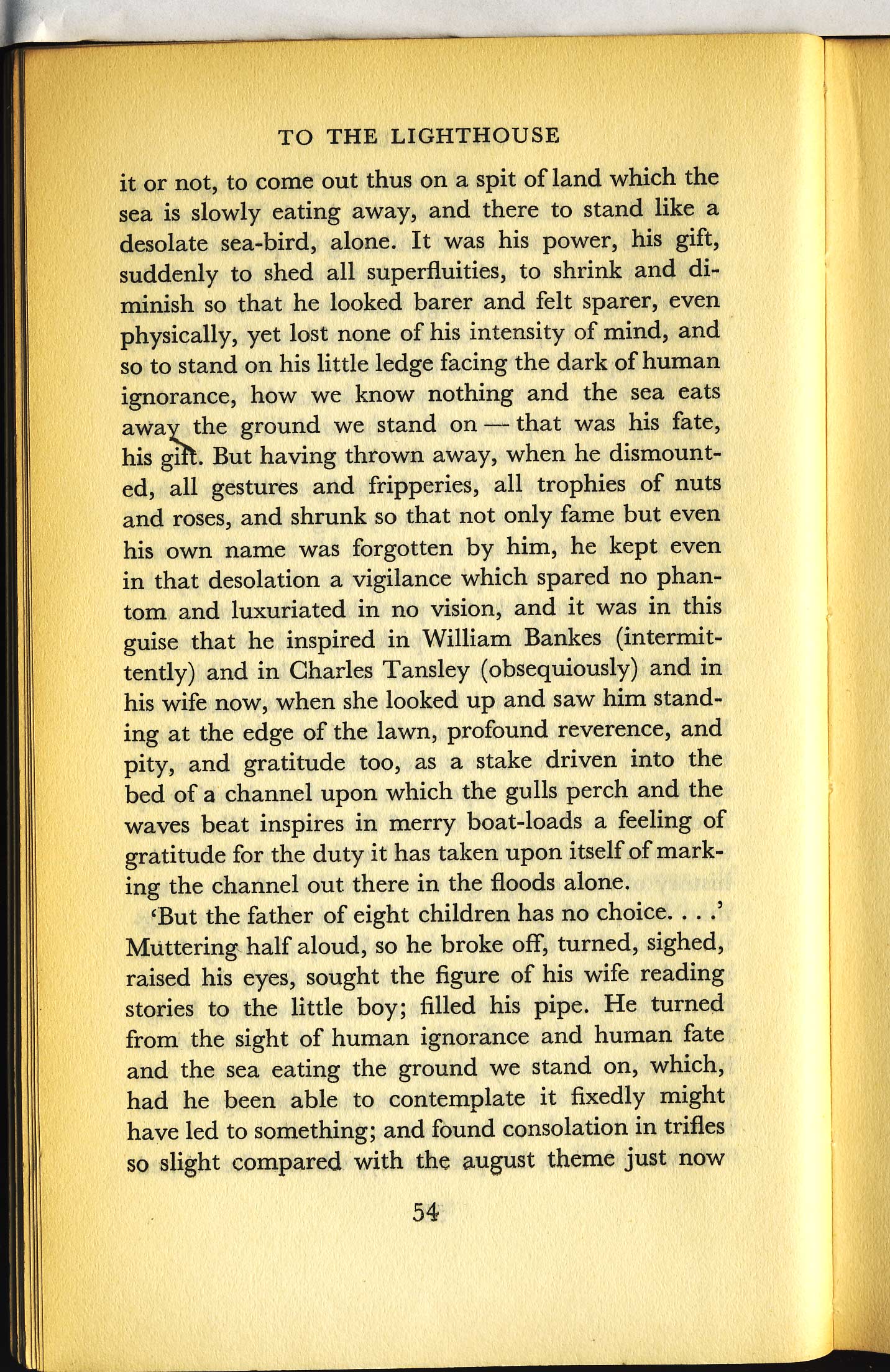
TO THE LIGHTHOUSEit or not, to come out thus on a spit of land which thesea is slowly eating away, and there to stand like adesolate sea-bird, alone. It was his power, his gift,suddenly to shed all superfluities, to shrink and di-minish so that he looked barer and felt sparer, evenphysically, yet lost none of his intensity of mind, andso to stand on his little ledge facing the dark of humanignorance, how we know nothing and the sea eatsaway the ground we stand on — that was his fate,his gift. But having thrown away, when he dismount-ed, all gestures and fripperies, all trophies of nutsand roses, and shrunk so that not only fame but evenhis own name was forgotten by him, he kept evenin that desolation a vigilance which spared no phan-tom and luxuriated in no vision, and it was in thisguise that he inspired in William Bankes (intermit-tently) and in Charles Tansley (obsequiously) and inhis wife now, when she looked up and saw him stand-ing at the edge of the lawn, profound reverence, andpity, and gratitude too, as a stake driven into thebed of a channel upon which the gulls perch and thewaves beat inspires in merry boat-loads a feeling ofgratitude for the duty it has taken upon itself of mark-ing the channel out there in the floods alone.‘But the father of eight children has no choice. . . .'Muttering half aloud, so he broke off, turned, sighed,raised his eyes, sought the figure of his wife readingstories to the little boy; filled his pipe. He turnedfrom the sight of human ignorance and human fateand the sea eating the ground we stand on, which,had he been able to contemplate it fixedly mighthave led to something; and found consolation in triflesso slight compared with the august theme just now54









